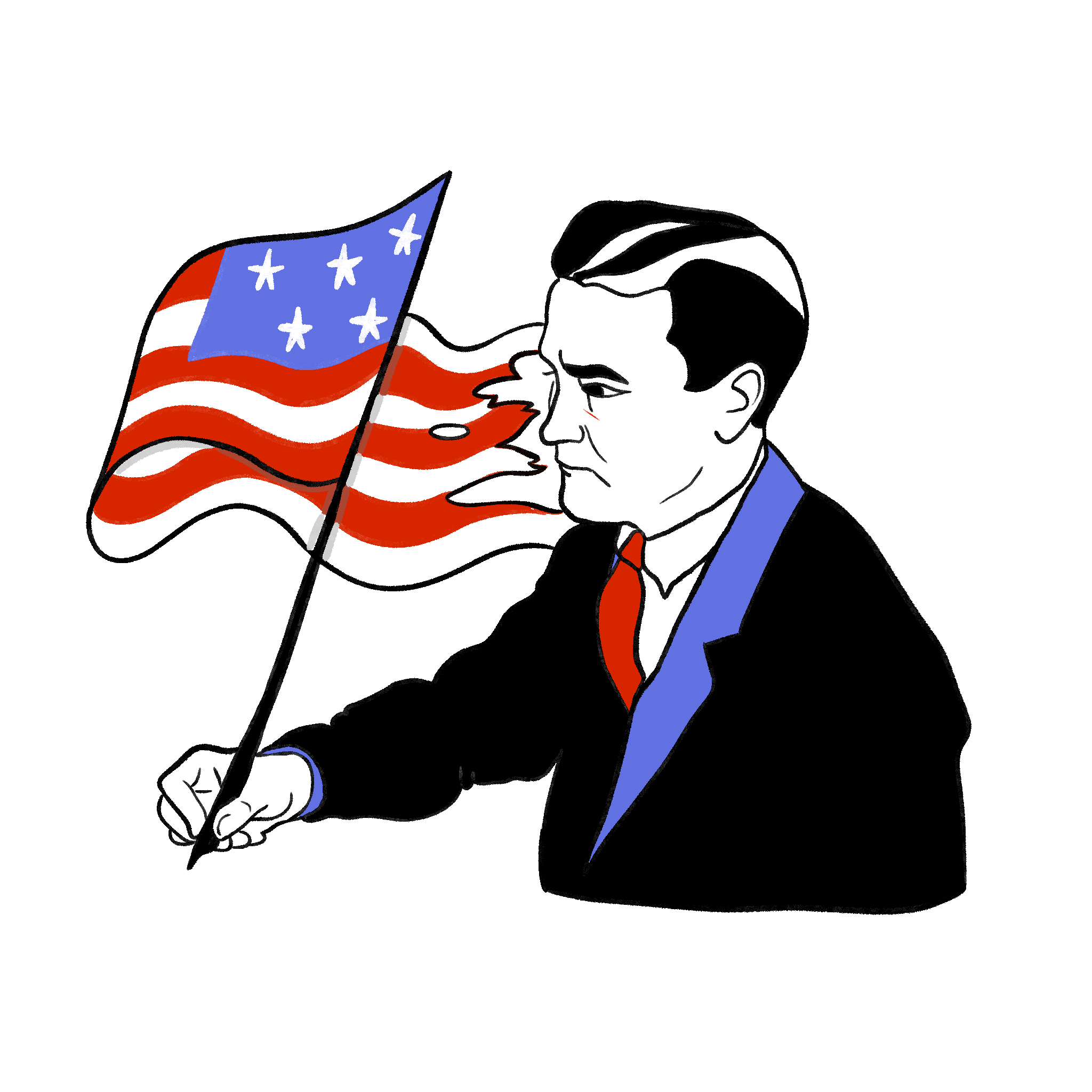The Next Great American Novel is a man’s feat
February 23, 2024
 This
piece represents the opinion of the author
.
This
piece represents the opinion of the author
.
The Next Great American Novel must be, and will be, written by a man.
Women can easily relate to both other women and men. By what processes of cultural hegemony and forced mental dexterity this is a product, I can only venture to know. Men can relate to other men; occasionally, perhaps more so in the age of the newly enlightened sensitive type, men can relate to other women. However, I still hold that their ability to relate remains stunted. In short, women exhibit greater diversity in their capacity to idolize and thus can relate to male-identifying authors better than their male counter-readers can to female-identifying authors.
Insofar as it is a critical component of literary readership to relate to the author, or, at least, the world and characters that the author conjures up, only a man can write The Next Great American Novel. And I feel almost insulted by having to write this sentence, but I have been advised to do so: Yes, I do believe that women have written and can write Great Novels. Just keep reading.
So, what do I mean by “The Next Great American Novel”? What does anyone ever mean by those hallowed words? It seems to be one of those pesky terms that, having been canonized so long ago, any effort to define it leaves one in a tautological mess (and a state of frustration unique to those caught in the tautological spin cycle).
For starters, it’s anticipatory: we are eagerly awaiting The Next! A sunshiny optimism is pinned to the promise of this work. There is hope yet, as if there is art left to be made. And let it be Great!
It’s also nationalistic: There is hope to be had in what awaits this great country. There is also, ostensibly, something unique to the American identity that serves as a sufficient classification criterion for a given book. This presupposes a couple of things: 1) That being an American actually means something distinct and 2) That the American experience is sufficiently codified such that it can be packaged between two cover pages.
And finally, Novel. The American Identity—potent enough to be first distilled and then drawn out into an array of rootsy adventures—is so much a real thing that it can be fictionalized. Only real things can be fictionalized. Fictional things are born into artifice and rarely transcend their plastic walls.
So—hopeful, triumphant, distinct and fake. Surely, a woman has cobbled together some combination of these characteristics into a literary body. And of course, female-identifying authors have successfully captured some semblance of American identity into the form of a novel. However, I ask you to consider the possibility that this whole is greater than the sum of its parts.
Before I am decried with protests in the name of Toni Morrison and Luisa May Alcott, we must consider what aura, what symbolic exchange value shrouds the true Great American Novel. The Great American Novel, more than a collection of criteria, represents a spirit contingent on community buy-in. Readers must believe in the revolutionary mythologies whose remnants echo across these pages—stories that laud the triumph of our American spirit. Freedom chimes loudest from the mouths of protagonists. The Next Great American Novel has always been in the hands of our revolutionary men—at their nascence, our Founding Fathers.
I asked my friend Eleanor who she thought wrote the last Great American Novel. She reported, somewhat defeated, John Steinbeck. When pushed on the vintage of her answer, she whined that no one writes well these days. This is the type of cynicism (and perhaps smidge of naïveté) typical of my dear 20-year-old companion. And her complaint is certainly not the crux of my argument.
Personally, I believe it would be a great disservice to Toni Morrison and Luisa May Alcott to shove them into a canon that didn’t care to make space for them at its conception. There’s no point. Sure, university boards and high school curricula can “expand the canon” into oblivion, until it’s bloated beyond recognition. Or, we can stop striving after the stench of a simulated revolutionary spirit. Liberate yourself from the ideal of Great American Novels. It’s not a helpful distinction as soon as you introduce any pluralism into our American identity. The Great American Novel is an abstract ideal created by men for men to explore the lasting imprints of Manifest Destiny-type ethos in larger-than-life protagonists. Let them have it.
Comments
Before submitting a comment, please review our comment policy. Some key points from the policy:
- No hate speech, profanity, disrespectful or threatening comments.
- No personal attacks on reporters.
- Comments must be under 200 words.
- You are strongly encouraged to use a real name or identifier ("Class of '92").
- Any comments made with an email address that does not belong to you will get removed.


There is and will be only one Great American Novel, and yes, Melville is indeed a man.
Won’t take this East of Eden slander
Not sure how to feel about this as a man, but liked it a lot!
John Steinback wasn’t the last great American novelist! Blood Meridian came out in 1985s.
Yes, yes I realize Ava Liversidge is quite right and she has thankfully relieved me of a hours=long task of researching the definitive definition of the Great American Novel. It does not apply to us Americans. We are too diverse a country to have an American definition other than that == the diversity. Which leaves us scores of Great American Novels by and about every race, class, gender, sexuality author. Although, although there DOES seem to be a thread common to all — a journey that is particularly American be it physical, emotional, psychological, spiritual or even existential. The “American-ness” of that journey…